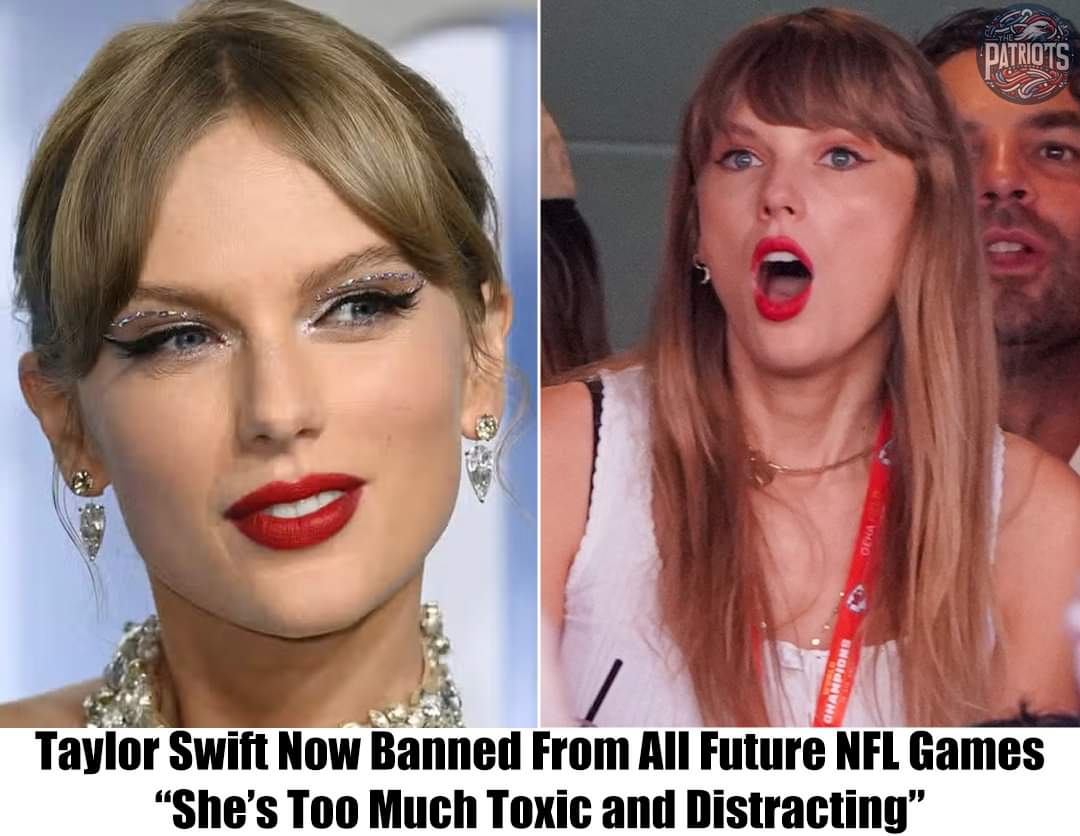CELEBRITY
Breaking: NFL Bans Taylor Swift From Super Bowl, “She’s Too Distracting”

In a move that has stunned fans and industry insiders alike, the National Football League (NFL) has announced a decision to ban pop superstar Taylor Swift from performing at the Super Bowl, citing that she is “too much distracting.”
This unprecedented decision marks a significant shift in the NFL’s approach to entertainment, especially considering the Super Bowl’s reputation for featuring high-profile musical acts.
Taylor Swift’s presence could have drawn in a broader audience, potentially boosting ratings and attracting casual viewers who are more interested in the halftime show than the game. The absence of a star of Swift’s caliber might result in a different viewership dynamic, with potential impacts on advertising revenue and overall interest in the event.
This situation highlights the ongoing challenge of balancing the sports aspect of the Super Bowl with its entertainment quotient. While the primary purpose of the event is to showcase the pinnacle of American football, the halftime show has evolved into a cultural phenomenon in its own right. Striking the right balance between these two elements is crucial for the success and relevance of the Super Bowl.
The ban on Taylor Swift opens up a conversation about the future direction of Super Bowl entertainment. It may signal a shift towards more subdued or sports-centric halftime shows, or it could prompt the NFL to reconsider how it integrates entertainment into its biggest event. The industry will be watching closely to see how this decision impacts not only future Super Bowl halftime shows but also the relationship between sports leagues and entertainment figures.
The NFL’s decision to ban Taylor Swift from performing at the Super Bowl due to her being “too much distracting” is a moment of significant reckoning in the intersection of sports and entertainment. It raises important questions about the role of halftime shows, the expectations of fans, and the broader cultural impact of such decisions. As the debate continues, one thing is clear: this decision will be remembered as a pivotal moment in the history of Super Bowl entertainment, setting a precedent that could shape the event for years to come.




![[First degree murder charge] Man arrested in the deadly shooting of 12-year-old girl in Southeast Baltimore](https://usatune.com/wp-content/uploads/2024/07/4723e31b5fd1547749b0ff0fabb250ad-80x80.jpg)

![“Goodbye, Legend!” Emma Heming Shares Heartbreaking News About Bruce Willis, A good day to die hard the Actor’s Latest Developments [Tragic]](https://usatune.com/wp-content/uploads/2024/07/451047620_1664828077616493_1970708724494300183_n-80x80.jpg)






